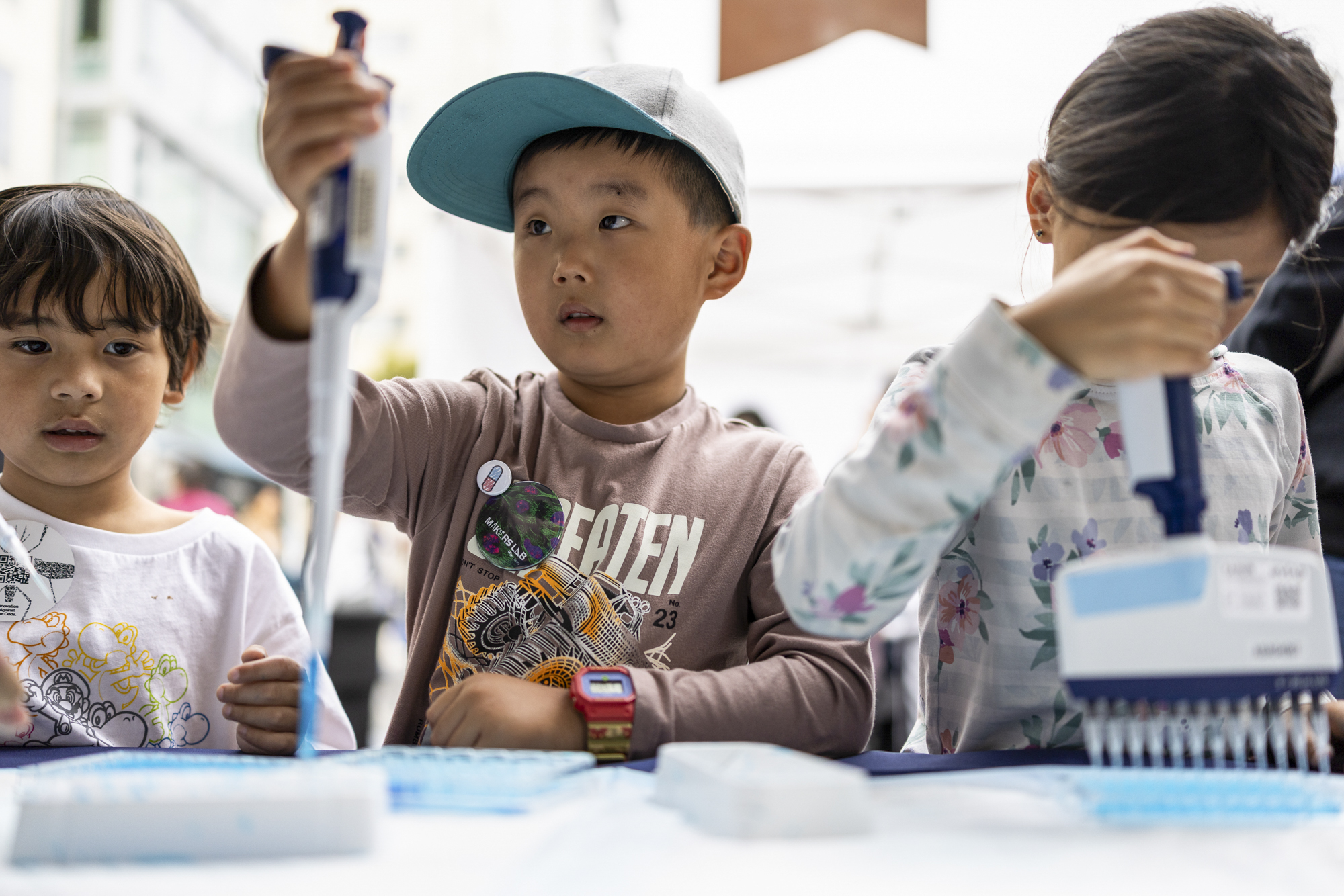
""We behave differently when we're anxious or when we're experiencing fear, versus when we are feeling courageous. And mice do the same," explained Alexandra Klein, postdoctoral researcher at UCSF, during a lab tour, adding that there are multiple experiments conducted in the lab to analyze a mouse's behavior - all this to understand human brain functions better and potentially cure diseases. The tour even showcased a real mouse brain in a test tube."
"Indoors, a chicken robot named Gary roamed the floors as kids twisted colorful DNA chains, peered through microscopes, and learned about the Bay Area's geology, earthquakes and global warming. Visitors also got a rare peek inside UCSF's research labs - spaces usually off-limits to the public - exploring everything from neuroscience and human performance to cutting-edge robotics. On one tour, participants learned how researchers conduct experiments with mice to study their brains."
Children interacted with hands-on exhibits including a roaming chicken robot, colorful DNA chains, microscopes, and displays about geology, earthquakes, and global warming. Visitors received rare access to UCSF research labs, viewing work in neuroscience, human performance, and robotics. Lab tours demonstrated experiments using mice to study brain behavior, with explanations linking mouse behavior to human emotions and disease research and a real mouse brain shown in a test tube. The Robot Zoo featured machines like RoboForce and Dynamene, and volunteers helped children assemble robots, providing inspiring, screen-free STEM experiences for families.
Read at Kqed
Unable to calculate read time
Collection
[
|
...
]